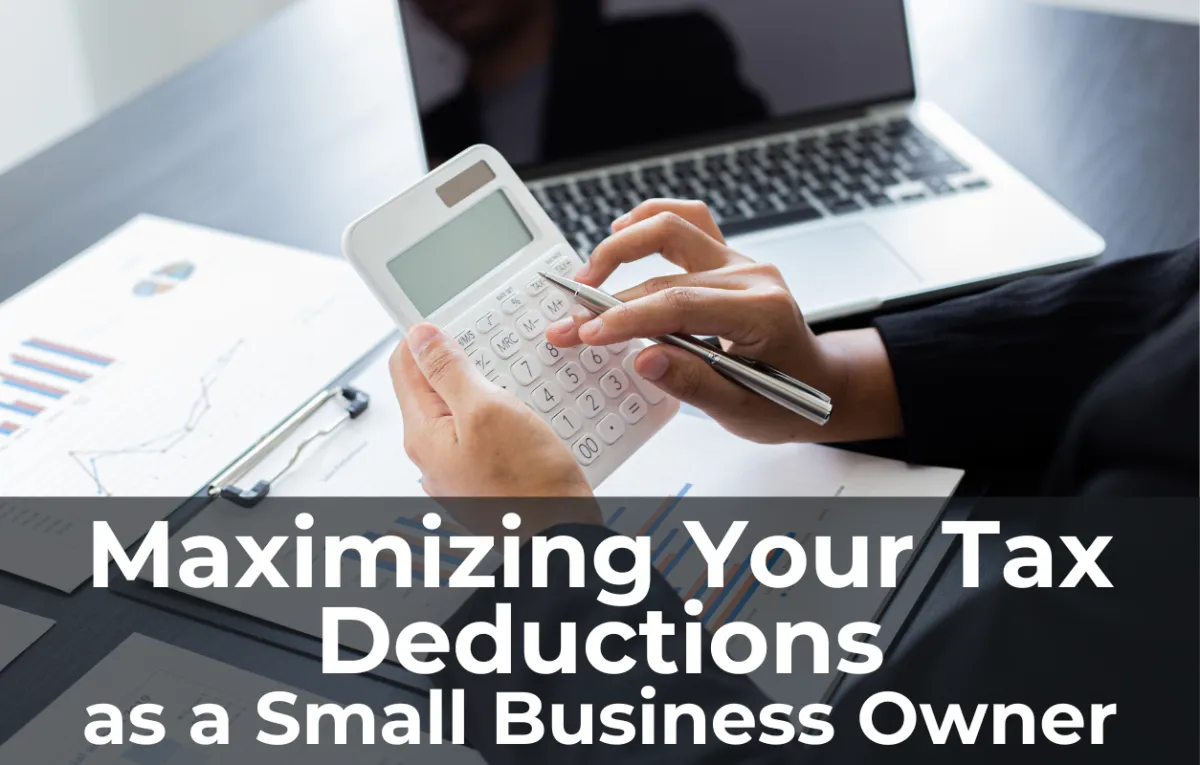Blog
Helping Businesses and Nonprofits Thrive Through Smarter Accounting

Maximizing Your Tax Deductions as a Small Business Owner
As tax season approaches, many small business owners start looking for ways to reduce their tax liability and keep more of their hard-earned money. Understanding which deductions you're entitled to can make a significant difference. Let’s dive into some key strategies to help you maximize your tax deductions this year.
Common Deductions for Small Business Owners
1. Office Supplies and Equipment
Office supplies like paper, pens, and ink, as well as larger purchases like computers and printers, are fully deductible. If you’ve bought equipment, you may also be able to claim a Section 179 deduction, allowing you to deduct the full cost in the year of purchase rather than depreciating it over time.
2. Home Office Deduction
If you use part of your home exclusively for your business, you may qualify for the home office deduction. This deduction allows you to write off expenses related to the portion of your home used for business purposes, such as rent, mortgage interest, utilities, and maintenance.
3. Utilities and Internet
Expenses for utilities and internet used for your business are deductible. If you operate from a home office, you can deduct the business portion of your utility and internet bills.
4. Advertising and Marketing
Expenses related to marketing and advertising, such as website development, social media ads, business cards, and promotional materials, are fully deductible. These investments help grow your business and reduce your taxable income.

5. Professional Services
Fees paid to accountants, lawyers, and other professionals for business services are deductible. This includes costs for tax preparation, financial advice, and legal consultations.
6. Depreciation
Depreciation allows you to deduct the cost of expensive business assets over their useful life. This includes office furniture, equipment, and vehicles. Understanding and applying depreciation correctly can significantly reduce your tax burden.
7. Travel Expenses
Travel costs related to business, including airfare, hotels, and transportation, are deductible. Keep detailed records and receipts to substantiate your expenses.
8. Repairs and Maintenance
Costs for repairs and maintenance on business property or equipment are deductible. This includes fixing office equipment, servicing vehicles used for business, and maintaining your office space.
9. Insurance Premiums
Premiums paid for business insurance policies, such as liability insurance, property insurance, and health insurance for employees, are deductible.
10. Startup Costs
If you’re starting a new business, you can deduct up to $5,000 in startup costs and $5,000 in organizational costs in the first year of business. This includes expenses like market research, advertising, and legal fees.
Tips for Effectively Tracking Your Deductions
Maximizing your tax deductions requires diligent record-keeping and organization. Here are some tips to help you stay on top of your expenses:
1. Use Accounting Software
Invest in reliable accounting software to track your income and expenses. Many programs can automatically categorize expenses and generate reports, making it easier to identify deductible items.
2. Keep Receipts and Documentation
Maintain physical or digital copies of all receipts, invoices, and relevant documentation. This helps substantiate your deductions in case of an audit.
3. Separate Personal and Business Finances
Use separate bank accounts and credit cards for business transactions. This makes it easier to track expenses and reduces the risk of mixing personal and business finances.
4. Track Mileage and Travel
If you use your vehicle for business, keep a detailed log of your mileage, including the date, purpose of the trip, and miles driven. For travel expenses, retain all receipts and keep a record of the business purpose.

5. Review Monthly Statements
Regularly review your bank and credit card statements to ensure all business expenses are recorded and categorized correctly.
6. Consult with a Tax Professional
A tax professional can provide valuable insights and ensure you’re taking advantage of all available deductions. They can also help you navigate complex deductions like depreciation and startup costs.
Conclusion
Maximizing your deductions as a small business owner requires careful record-keeping and a thorough understanding of available deductions. By staying organized and consulting with a tax professional, you can ensure you're taking full advantage of all potential savings.
Copyright 2022 - RNB Capital LLC - All Rights Reserved

